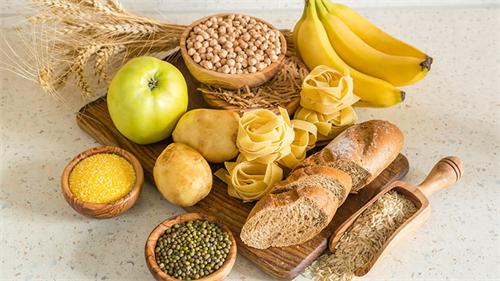How Embracing Complex Carbs Revitalizes Your Health?

Carbohydrates often get a bad reputation, but not all carbs are created equal. Swapping refined, simple carbohydrates for complex, fiber-rich alternatives can bring transformative benefits to your health—from balanced blood sugar and better weight control to stronger heart health and improved digestion. Understanding the difference between carbohydrate types and making thoughtful dietary changes is a powerful step toward long-term wellness.
The Power of Complex Carbohydrates
Carbohydrates are chemically classified as either simple or complex. Simple carbs—like those in candy, soda, and white bread—are made up of short chains of sugar molecules that are quickly digested, often causing rapid spikes in blood sugar. In contrast, complex carbohydrates, such as those found in legumes, whole grains, and starchy vegetables, contain longer chains of sugars and digest more slowly, providing steady energy and lasting satiety.
The glycemic index (GI) helps illustrate this distinction. Foods with a high GI, like white rice or sweet pastries, cause rapid blood sugar increases. Low-GI foods, such as barley or lentils, release glucose gradually, helping to regulate blood sugar and reduce the risk of insulin resistance and type 2 diabetes.
But complex carbs offer much more than just blood sugar stability. They’re rich in dietary fiber, which slows digestion and enhances fullness, helping people eat less and maintain a healthy weight. They also feed beneficial gut bacteria, support cholesterol control, and deliver essential nutrients like B vitamins, iron, and antioxidants.
Long-term studies support these benefits. People who regularly consume high-fiber, low-GI foods tend to have a lower risk of heart disease, diabetes, and obesity. In fact, research from the Nurses’ Health Study links midlife consumption of whole plant-based carbs with better physical and cognitive function later in life.
Simple and Practical Swaps
Transforming your diet doesn't require extreme changes. Small, consistent substitutions can make a big impact:
Choose whole grains over refined ones: Swap white bread, rice, and pasta for whole-grain or sprouted versions.
Add more legumes: Lentils, black beans, and chickpeas are nutrient-dense and versatile in soups, salads, or side dishes.
Pick starchy vegetables: Sweet potatoes and winter squash can replace processed sides like fries or chips.
Upgrade your breakfast: Trade sugary cereals for steel-cut oats topped with fruit and nuts.
Snack smarter: Reach for fruit, vegetables with hummus, or a handful of roasted chickpeas instead of processed snacks.
To make the transition smoother, start with mixed options—like combining white and brown rice—and gradually increase the ratio of whole grains. You can also improve the appeal of complex carb dishes by using herbs, citrus, or vinegar for added flavor without added sugar.
Embracing complex carbohydrates isn’t about restriction—it’s about nourishment. By choosing whole, fiber-rich sources over refined carbs, you can enjoy better energy, improved weight management, stronger digestion, and protection against chronic disease. With a little knowledge and a few strategic swaps, the journey from sugar rush to sustainable health is not only possible but delicious.



